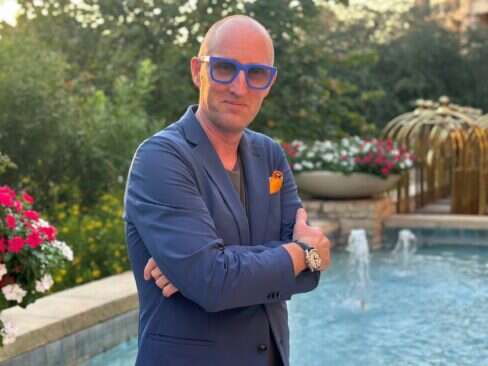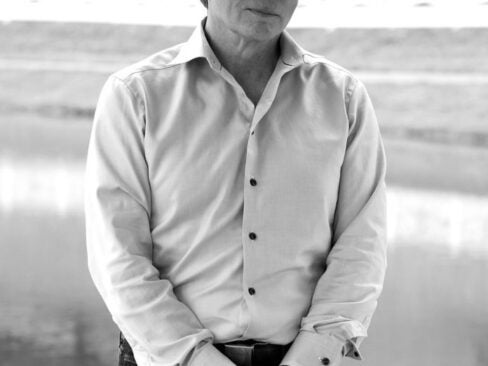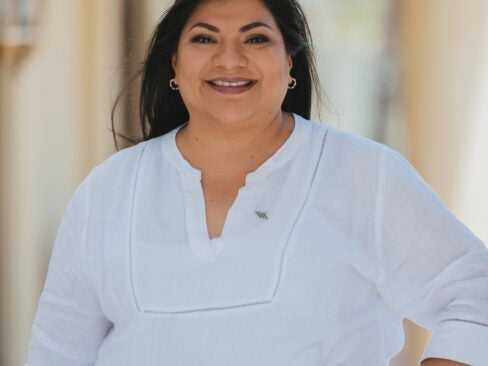
CEOAvantair
Steven Santo founded Avantair in July 2003. Through Santo’s entrepreneurial spirit and leadership, Avantair has grown to one of the most unique fractional companies in the industry with the world’s largest fleet of P180s. A former Assistant District Attorney of New York who holds degrees from Villanova University and Saint John’s School of Law, Santo himself has flown more than 1,000 hours in the P.180 and was behind the controls of the first owner flight.
ET: Using your own predictors and economic modeling, where do you see the industry going in the next 12 months?
Steven Santo: Well, business jet trends trail the stock market by six months. On the used aircraft side, which is a common metric everyone uses, we are just starting to see the impact. We’re definitely seeing the inventories grow in used aircraft, and for us to turn a blind eye to that would be wrong. So I can tell you at Avantair six months ago, we saw that kind of softening coming, so took a gamble and slowed infrastructure. We said, “Look, we’re not going to grow 16 shares a month or a full aircraft a month like we planned.” We’re probably going to grow at half an airplane to three-quarters of an airplane a month. And so that’s what we focused on. We just released our financials, and it shows that that methodology was the right course of action.
ET: Can you give us some specifics about Avantair’s financials?
Steven Santo: We said that at 45 aircraft we’d be operating break even, and we’re selling into our 43rd aircraft now, so we’re very close. From a cash flow perspective, we’ve seen an increase of more than $10 million quarter-over-quarter. So those are all good signs of what’s going on. And we continue to meet our sales goals—about 12 units a month. People who are paying significantly more for private air travel but may not have cared about it in a very strong economy, they’re really looking for alternatives now. They’re not going to go back to flying commercial, but they are interested in reducing costs, as everyone is. In fact, 80 percent of our sales are from other people with other fractional or card programs.
ET: How you got into aviation and what was the genesis of Avantair?
Steven Santo: I am an attorney by trade, a recovering attorney, I call myself. I was a prosecutor in New York for almost five years and became a partner in the law firm, and never really liked private practice as much as being a prosecutor. I started an aircraft leasing company to shake things up a little; I had been flying the whole time as a pilot. The company did well, and we turned it into Avantair. Seeing the Piaggio Avanti, which is what we sell shares and access to, was really what jump-started the business plan. We saw an aircraft that burned a lot less fuel, was less expensive to operate, but had a much larger cabin than its direct price competitors.
So we negotiated an exclusive deal with Piaggio, and we thought we’d find a nice niche in the market. When we started the difference between flying commercial and flying private, even a relatively inexpensive private solution, was just huge, so we thought if we could create something right in between, there was a marketplace waiting for that. We just took delivery of our 50th airplane, so it’s been astonishing growth over five years.
ET: What type of people are you getting into the Avantair program?
Steven Santo: Our customer profile has definitely changed lately. It used to run the gamut from a private leisure traveler to a wealthy golfer. We really had about 70 percent personal recreational use, 30 percent business. And now we’ve seen a complete swap. Any remaining personal travel is tightly focused, usually someone who belongs to a residence club or owns a second home. What’s nice about our offering is if you bought a more traditional light jet program initially for business, you can’t really picture putting your family on board when you eventually want to use it for personal travel—Most light jets are just too small. But with our midsize jet cabin you really get to do both. At the end of the day, 50 percent of the people who buy from us were referred by another owner, which is a great testament to our appeal, too.
ET: Can you tell us a little bit about how the product might evolve?
Steven Santo: I think we’re going to focus more on the card offering side, developing different types of programs. Right now we have a 25-hour card, and I think we’re going to offer a 10-hour card, and then programs all the way up to 200-hour cards. We also want to give fractional owners more flexibility. We might be able to offer lower pricing based on some kind of commitment to not travel on certain high-traffic days. I think the consumer is looking for value and any way you can give it to them is just going to make you that much stronger in this marketplace.
ET: Has your experience as an attorney been helpful in launching this business?
Steven Santo: It’s been very helpful. Aviation is a highly regulated industry, so having a law background is really useful. I did a lot of aviation work in my practice, so I got to know some key industry players very well, particularly Southwest Airlines. And so, I was really able to model a lot of what we do based on what they did. One aircraft type, keep the cost down, focus on service, and give people what they want at a cost that they’re comfortable paying. There are lot of those ideas reflected in Avantair’s value proposition. We have fixed fees, you don’t pay early fees. Our fuel surcharge is one-third of our competitors. People feel like they’re getting a lot for their money.
ET: Anything hobbies outside of work?
Steven Santo: Any chance I get to spend a day on a boat is something I really enjoy doing. I like to ski, too. I used to like to play golf, but there’s just not enough time for that now. I’m a big sport fishing fan, too. In South Florida there are so many great spots to fish, and nearly all of those places are also fun for your whole family. The boating lifestyle is great; you meet a lot of other people.
ET: What was it like, as employee number one to grow to 400 people in a fairly short time?
Steven Santo: The biggest key to successful growth is communication. You have to know what you’re good at as a manager and what you’re not good at. As a CEO, you try to get the best people that you can to run those areas that you’re not good at. It’s a struggle because you might want to do everything, especially when you’re employee number one and you did do everything when there was only one or two airplanes.
I also don’t think you could be successful in aviation without watching your expenses very closely. One mistake doesn’t just cost you $100; it costs you $100,000. More than half of our employees are pilots that are scattered around the country. So our biggest challenge is communicating with all of them. People have to be empowered to be part of the company, even if they hardly ever come into headquarters.
We don’t allow any doors to be closed in our office. Every door has to be open, all the time. We never want people walking by a closed door and saying, “Gee, what are they talking about in there? Is everything okay?”
We have a running stat…it’s the number, percentage-wise, of ideas that we’ve used that came from our own employees. Over half the ideas that we generate internally end up being used. We encourage our owners similarly. We believe we can learn from everybody.
ET: As an Avanti provider, your fortunes are somewhat tied to the aircraft’s manufacturer Piaggio. What is the impact of something like Tata’s recent investment in Piaggio? What does that bring to you as a customer?
Steven Santo: It just makes us feel a whole lot more comfortable about their stability. The interesting part about this story is five years ago, Piaggio and Avantair were very similar companies. Two fledgling firms that were getting started, two very high-risk entrepreneurial ventures. Now we’ve grown together, I think we’ve both benefited each other. They had a great product and it got a lot more visibility because Avantair was flying it a lot. But the fact that they’ve been getting investment from such large groups just tells you how good the product is. When you’ve got investors like Mubdala and Tata, it tells me we picked the right product and now they have the right backing. I think we’re going to see more great things from them very soon.
ET: Obviously, carbon footprints and relatively green operations are of keen interest these days. Any news on that front?
Steven Santo: We have teamed up with carbon-offset firm TerraPass. The Avanti aircraft itself has a very small carbon footprint compared to our competitors already. The airplane burns only 95 to 100 gallons an hour, about one-third the amount of typical light jet. But the TerraPass program lets our customers pay out a certain amount based on their flight hours that in turn gets invested in things like windmills, alternative energy and other projects. It’s about flying smart in every way, not just financially but environmentally, too.










